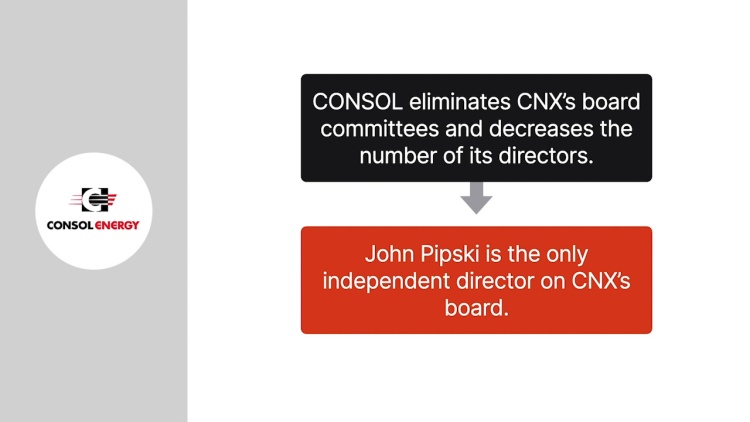In re CNX Gas Corporation Shareholders Litigation
Delaware Court of Chancery
4 A.3d 397, 2010 WL 2291842, 2010 Del Ch. LEXIS 119 (2010)
- Written by DeAnna Swearingen, LLM
Facts
CONSOL Energy (CONSOL) (defendant) owned 83.5 percent of CNX Gas Corp. (CNX) (defendant). After an unsuccessful attempt at acquiring CNX’s outstanding shares, CONSOL eliminated CNX’s board committees and decreased the number of directors. Only one director, John Pipski, was independent. CONSOL negotiated with T. Rowe Price (Price), an institutional investor that held 6.3 percent of CNX’s stock and 6.5 percent of CONSOL’s on an acceptable tender offer. CONSOL commenced a two-step freeze-out merger, offering $38.25 per share for its tender offer and planning a short-form merger afterward. The offer was conditional on a majority of the minority shares being tendered. CNX’s board authorized a special committee consisting of Pipski to consider the merger and complete a Section 14D-9 form for the Securities and Exchange Commission. The board refused to add an additional director or authorize the committee to negotiate. Pipski nevertheless tried to get CONSOL to up its offer. The CNX board retroactively authorized the committee to negotiate, but CONSOL refused to raise the price. The committee did not give an opinion on the offer, but suggested that CONSOL’s agreement with Price, whose interests were different than other minority shareholders’, assured the tender offer’s success and nullified the majority-of-the-minority condition. CNX’s minority shareholders (plaintiffs) sued in the Delaware Court of Chancery to challenge the tender offer.
Rule of Law
Issue
Holding and Reasoning (Laster, J.)
What to do next…
Here's why 907,000 law students have relied on our case briefs:
- Written by law professors and practitioners, not other law students. 47,100 briefs, keyed to 996 casebooks. Top-notch customer support.
- The right amount of information, includes the facts, issues, rule of law, holding and reasoning, and any concurrences and dissents.
- Access in your classes, works on your mobile and tablet. Massive library of related video lessons and high quality multiple-choice questions.
- Easy to use, uniform format for every case brief. Written in plain English, not in legalese. Our briefs summarize and simplify; they don’t just repeat the court’s language.





